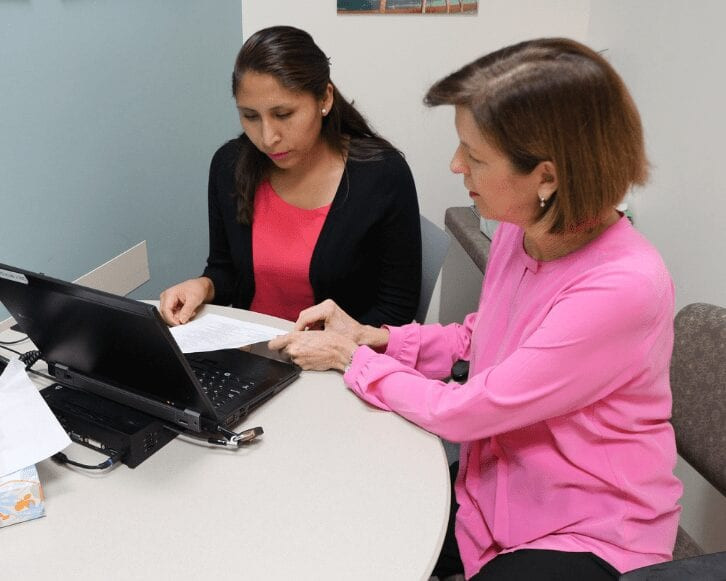When Good Health Requires More Than Medical Care
People frequently need more than health care to navigate a major health problem—or even to deal with ongoing health issues for themselves and their families. It’s hard to make a doctor’s appointment if you don’t have transportation or can’t find daycare for your kids. And how can you combat a serious illness if you can’t afford nutritious foods that can help you get well?At Arlington Free Clinic (AFC), we realized that our nurses were spending a lot of time helping patients manage non-medical problems like these that undermined their health. We wanted to continue supporting our patients, but we needed a better way—one that would allow our health care providers to focus on providing medical care while addressing patients’ non-medical challenges.With funding from Kaiser Permanente, Northern Virginia Family Service placed a full-time non-medical case manager at AFC to do this kind of work for a year. She made such a difference that, after the funding ended, we decided we needed to find a way to make this a permanent position at AFC.With support from the Northern Virginia Health Foundation, we brought in Anabel Merida to be our social services case manager. Anabel works closely with our new patients—about 500 a year—as well as current patients referred to her by our clinical team, helping them solve non-medical problems that affect their health.
Taking A Broad View Of Health
Carla, for example, was 32 when she learned she had stage 3 breast cancer. AFC’s volunteer physicians and Virginia Hospital Center covered all her medical care. But as a single mother of two, she feared losing her job—and her home—while she underwent treatment. An immigrant from Morocco, she had no family locally to turn to for help.Anabel worked closely with Carla, showing her how to arrange free afterschool care for her kids and encouraging her to meet with their teachers to make sure they stayed on track. So that Carla wouldn’t miss work, Anabel connected her with Lyft, which provides free transportation to AFC’s low-income patients undergoing treatment for cancer and other health conditions. Anabel also arranged for meal delivery throughout Carla’s treatment so that Carla could stay strong while fighting cancer.During eight months of treatment, Carla missed only one day of work—the day of her surgery. Her health appears to be good, she’s still at her job, and her children are thriving.Another patient, Eric, was a construction worker until he found out he had chronic heart failure and had to get a defibrillator implant. Anabel connected him with Arlington County’s employment services and with Lyft for transportation to and from his cardiology appointments. Now Eric works at a restaurant, where he is being trained for advancement. His heart condition has stabilized, and he is doing well.Yes, Carla needed good medical care to beat cancer. But she also needed the support she received from Anabel to manage her life and reduce her stress. Likewise, Eric got the medical care he needed for his heart condition, but he also needed to change his work. Otherwise, he would have been at risk for further heart damage. Annabelle’s support helped him make the transition to a job that was better for his health.Serious illness is not the only crisis our patients struggle with. Anabel also helps women suffering from domestic violence and sexual abuse. Anabel is a safety net for these women; she connects them with local shelters, health care providers, and mental health counseling, so that they get the support and services they need to get well and stay well.
Serving Patients Who Are Afraid To Seek Help
Many of our patients our immigrants. Through Anabel, we have learned more about the complications and challenges these patients face every day. Often there’s a lot they don’t know about our country, yet they are afraid to seek services, even at other nonprofit organizations. They are even more afraid of applying for government programs. And when they do apply for services, they may show up only to find out that they’ve wasted their time because they don’t have the correct paperwork.Anabel meets patients where they are, providing resources and information, without opinion or judgment. She listens and reflects on what she can offer, not what she can impose. This thoughtful, non-judgmental approach has served her well with patients across many cultures.Our patients are brave, resourceful, and resilient in so many ways. Many of them work more than one job to support their families, and they are committed to seeing their children succeed in life. But they often struggle to hold everything together, and when health issues arise, they don’t always have the resources to manage all the challenges in their lives at once.That’s where Anabel can help: by connecting them with the right supports and services and giving them the confidence they need to get through difficult times.

